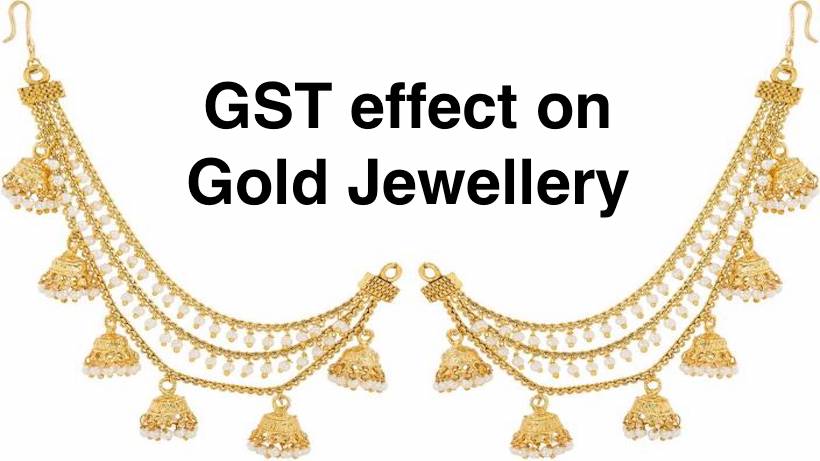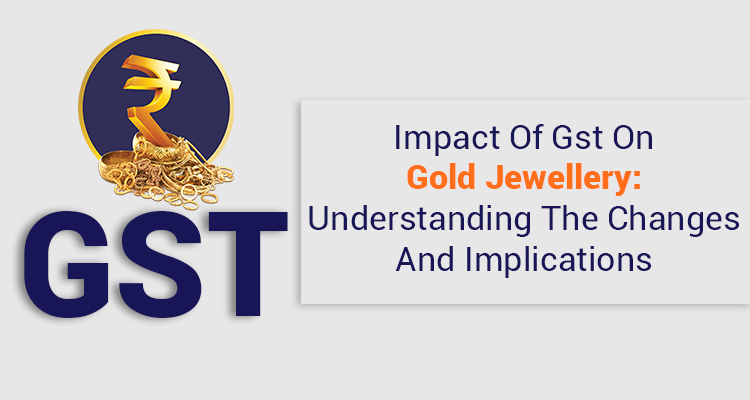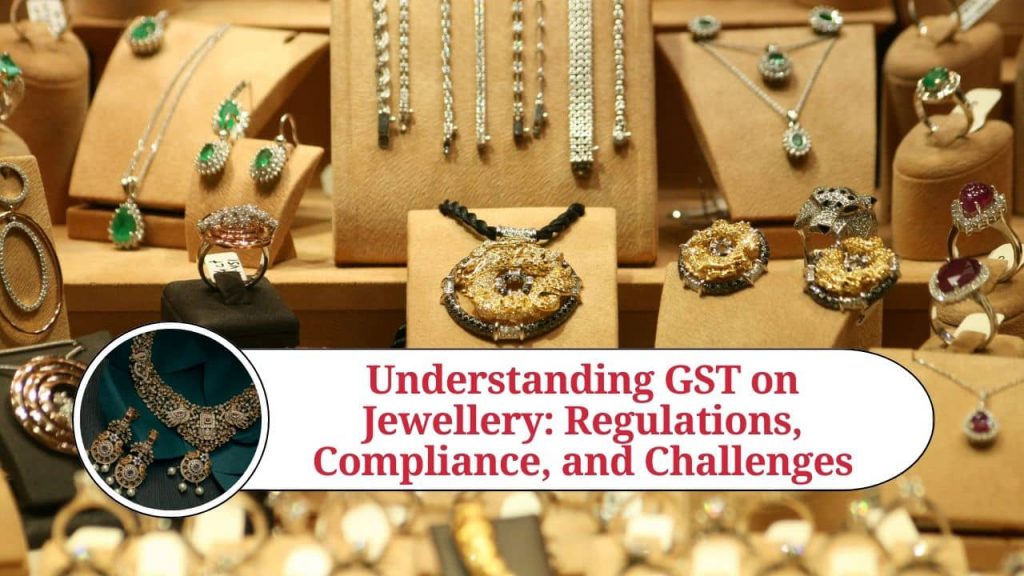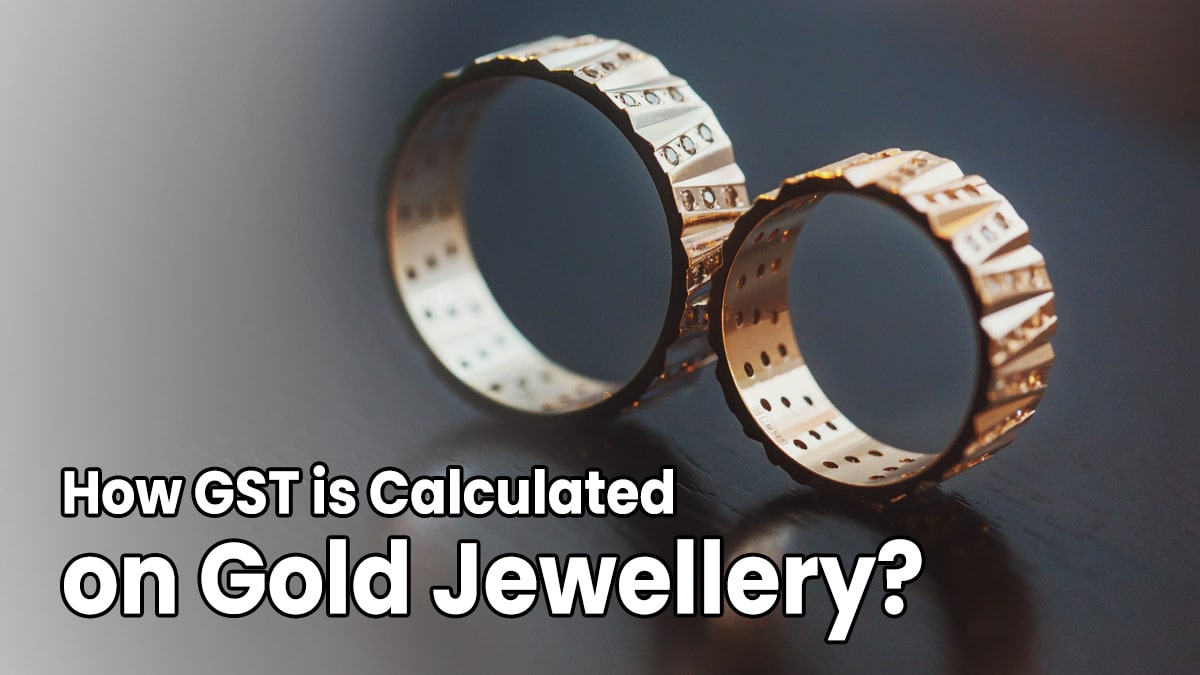Navigating the Complexities of GST on Job Work of Gold Jewellery
Related Articles: Navigating the Complexities of GST on Job Work of Gold Jewellery
Introduction
With great pleasure, we will explore the intriguing topic related to Navigating the Complexities of GST on Job Work of Gold Jewellery. Let’s weave interesting information and offer fresh perspectives to the readers.
Table of Content
Navigating the Complexities of GST on Job Work of Gold Jewellery

The intricate world of gold jewellery manufacturing often involves a collaborative process known as "job work." This involves a principal (jewellery manufacturer) entrusting a job worker (typically a craftsman or specialist) with specific tasks related to the creation or modification of gold jewellery. Understanding the Goods and Services Tax (GST) implications of such job work is crucial for both parties involved, ensuring compliance and smooth financial transactions.
This article aims to provide a comprehensive and insightful analysis of GST on job work of gold jewellery, delving into its key aspects, regulations, and practical implications.
Understanding the Fundamentals of Job Work in Gold Jewellery
Job work in gold jewellery typically involves the following steps:
- Principal’s Role: The principal, usually a jewellery manufacturer, supplies the raw gold material, designs, and specifications to the job worker.
- Job Worker’s Role: The job worker, often a skilled craftsman or specialist, undertakes specific tasks like casting, polishing, engraving, or stone setting on the supplied gold material.
- Finished Product: The job worker returns the finished product, incorporating their craftsmanship, to the principal.
The GST Landscape for Job Work of Gold Jewellery
GST, a comprehensive indirect tax levied on the supply of goods and services in India, applies to the entire gold jewellery manufacturing process, including job work. Understanding the GST implications of job work is essential for accurate tax calculation, compliance, and financial management.
Key GST Considerations for Job Work of Gold Jewellery
- Supply of Services: The job worker’s contribution is considered a supply of services under GST, as they are providing their expertise and craftsmanship to transform the gold material.
- Input Tax Credit (ITC): The job worker is eligible to claim ITC on inputs used during the job work, such as polishing materials, stones, or other consumables.
- Reverse Charge Mechanism (RCM): The job worker is responsible for paying GST on the job work under the reverse charge mechanism (RCM) if the principal is registered under the composition scheme or is not registered under GST.
- Valuation of Job Work: The value of the job work is determined based on the cost of materials supplied by the principal and the charges levied by the job worker for their services.
- Invoicing and Documentation: Proper invoices must be issued by both the principal and the job worker, detailing the relevant GST information.
GST Rates Applicable to Job Work of Gold Jewellery
The GST rate applicable to the supply of services by the job worker depends on the nature of the job work and the category of the finished product. The current GST rate for gold jewellery is 3%.
Example Scenario: Illustrating GST on Job Work
Let’s consider a scenario where a jewellery manufacturer (principal) supplies 100 grams of gold to a craftsman (job worker) for making a gold necklace. The job worker charges ₹10,000 for their services.
- Principal’s Perspective: The principal will pay GST on the purchase of the gold material. They will receive the finished necklace from the job worker and pay GST on the final sale to the customer.
- Job Worker’s Perspective: The job worker will receive the gold material from the principal and provide their services. They will charge GST on their services and claim ITC on any inputs used during the job work.
Benefits of Understanding GST on Job Work
- Accurate Tax Calculation: Understanding GST regulations ensures accurate tax calculation, preventing potential penalties or disputes with the tax authorities.
- Efficient Financial Management: Proper GST compliance streamlines financial management by ensuring timely payments and accurate recordkeeping.
- Transparency and Accountability: GST regulations promote transparency and accountability in the gold jewellery industry, fostering trust and confidence among stakeholders.
- Simplified Supply Chain: The GST framework simplifies the supply chain by eliminating cascading taxes and promoting a seamless flow of goods and services.
Frequently Asked Questions (FAQs) on GST on Job Work of Gold Jewellery
1. Is GST applicable to all types of job work in gold jewellery?
Yes, GST is applicable to all types of job work in gold jewellery, regardless of the specific tasks involved.
2. Who is responsible for paying GST on the job work?
The job worker is generally responsible for paying GST on the job work, but the principal may be liable under the reverse charge mechanism in certain cases.
3. How is the value of the job work determined for GST purposes?
The value of the job work is determined based on the cost of materials supplied by the principal and the charges levied by the job worker for their services.
4. Can the job worker claim ITC on inputs used during the job work?
Yes, the job worker is eligible to claim ITC on inputs used during the job work, such as polishing materials, stones, or other consumables.
5. What are the implications of the job worker being unregistered under GST?
If the job worker is not registered under GST, the principal may be liable for paying GST on the job work under the reverse charge mechanism.
Tips for Effective GST Management in Job Work of Gold Jewellery
- Maintain Clear Contracts: Ensure clear contracts between the principal and the job worker, outlining the scope of work, payment terms, and GST responsibilities.
- Accurate Recordkeeping: Maintain accurate records of all transactions, including invoices, receipts, and input tax credit claims.
- Compliance with GST Regulations: Stay updated on all relevant GST regulations and ensure compliance with all applicable provisions.
- Consult Tax Professionals: Seek guidance from qualified tax professionals to understand the complexities of GST on job work and ensure accurate tax compliance.
Conclusion
Understanding the GST implications of job work in gold jewellery is essential for both principals and job workers to ensure accurate tax calculation, compliance, and smooth financial transactions. By adhering to GST regulations, maintaining proper documentation, and seeking professional guidance when needed, stakeholders can navigate the complexities of this sector with confidence and efficiency.





![GST on Gold Jewellery - Making Charges [2022] -Bizindigo](https://www.bizindigo.com/wp-content/uploads/2022/01/gst-on-gold-jewellery-bizindigo-1024x538.png)


Closure
Thus, we hope this article has provided valuable insights into Navigating the Complexities of GST on Job Work of Gold Jewellery. We thank you for taking the time to read this article. See you in our next article!